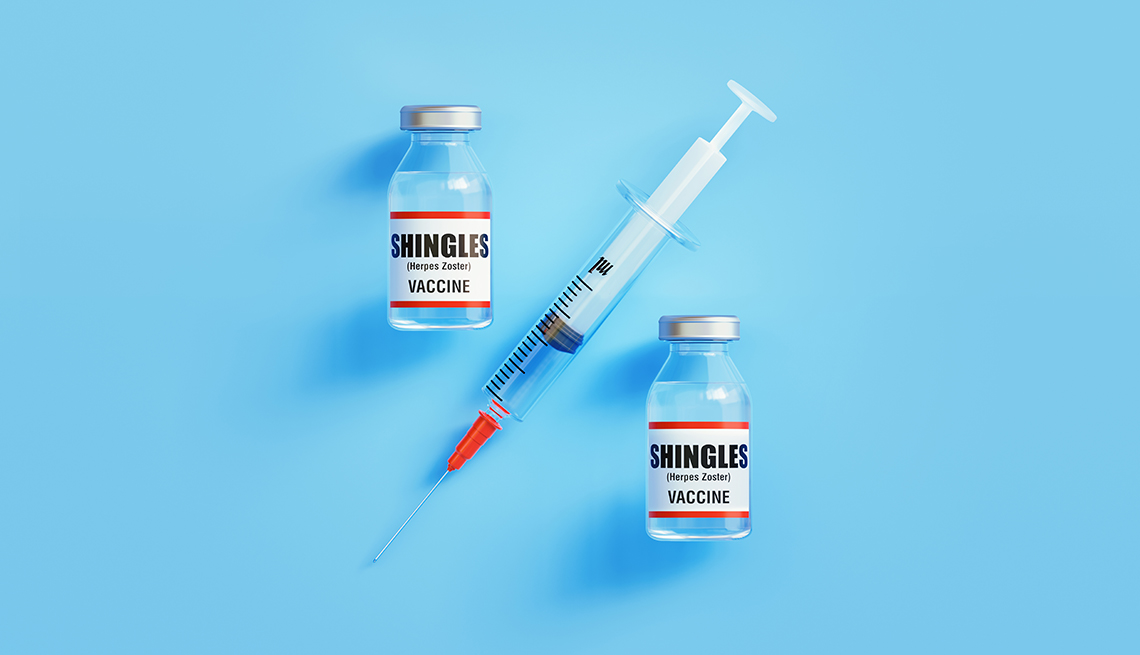
Why you need the shingles vaccine when you turn 50
- Select a language for the TTS:
- UK English Female
- UK English Male
- US English Female
- US English Male
- Australian Female
- Australian Male
- Language selected: (auto detect) - EN
Play all audios:

A COVID CONNECTION? A large observational study, published in 2022 in the journal _Open Forum Infectious Diseases_, makes clear how important it is for older adults to get both the COVID-19
vaccine and the shingles vaccine. Researchers analyzed medical data from nearly 400,000 older adults who contracted COVID-19 and more than 1.5 million who were never diagnosed. (Anyone
vaccinated against either shingles or COVID-19 was excluded.) What they discovered: Adults age 50 and older who were infected with COVID-19 were 15 percent more likely to develop shingles
within six months of their COVID-19 diagnosis than people who weren’t infected with the coronavirus. The risk shot up to 21 percent if they had been hospitalized with COVID-19. Health care
experts surmise that the uptick could be related to the strain of the pandemic. “Anything that is physically stressing to our body is going to potentially keep our immune system so busy
that it forgets to protect against shingles for a while, and give it a chance to come out,” Neel says. “And COVID is a very stressful event on our body and our immune system.” Indeed,
surveys show a “major increase” in the number of adults who reported stress, anxiety, depression and insomnia during the pandemic, according to the Mayo Clinic. Conversely, another large
retrospective study, published in 2022 in _The Journal of Infectious Diseases_, suggests that the Shingrix vaccine may offer a reduction in COVID-19 risk of diagnosis or hospitalization.
Researchers studied data from the electronic health records of Kaiser Permanente Southern California members age 50 and older, between March 1 and Dec. 31, 2020. One analysis compared
COVID-19 diagnoses and hospitalizations between people who had received at least one dose of the shingles vaccine and those who had not. The other analysis examined shingles vaccination
status among people who tested positive for COVID and people whose tests were negative. What they found: Individuals who received at least one dose of the Shingrix vaccine were 16 percent
less likely to be diagnosed with COVID-19. Shingles vaccine recipients were also 32 percent less likely to be hospitalized during the trial period. Researchers think the vaccine may train
the body to react more efficiently to any pathogen it encounters, including the coronavirus. “Our thought was that the shingles vaccine could potentially ramp up the immune system in a way
that would also protect against COVID-19,” Bradley Ackerson, M.D., one of the lead authors of the study, said in a news release. However, the researchers stress that people should not use
these results as an excuse not to get COVID-19 shots.
